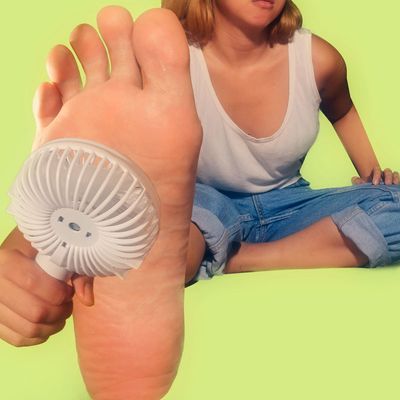Recognizing Excessive Sweating: Dermatology Insights on How to Stop Sweaty Hands
Recognizing Excessive Sweating: Dermatology Insights on How to Stop Sweaty Hands
Blog Article
Recognizing the Origin Reasons of Excessive Sweating and Its Effect On Daily Life
Too much sweating, likewise called hyperhidrosis, is a condition that influences a considerable part of the population, yet its hidden causes and effects on day-to-day working continue to be somewhat enigmatic. While it is frequently understood as a physiological feedback to regulate body temperature, the triggers for excessive sweating can vary commonly among individuals, including not only physical elements but psychological and additionally psychological elements. Additionally, the influence of this condition extends past simple discomfort, frequently affecting social interactions and general high quality of life. By diving into the origin of hyperhidrosis and exploring its complex impacts, a deeper understanding of this pervasive issue can be acquired, shedding light on the complexities that people grappling with excessive sweating navigate on an everyday basis.
Physiology of Sweat Glands
The regulation of sweat production, an important physiological procedure, is mostly regulated by the task of gland distributed throughout the human body. Gland are categorized into 2 main types: eccrine and apocrine glands. Eccrine glands are one of the most countless and are discovered in nearly all locations of the body. They play an essential function in thermoregulation by secreting a watery liquid onto the skin's surface area, which evaporates and helps cool down the body down. In contrast, apocrine glands are focused in areas rich in hair roots, such as the underarms and groin, and their secretions are thicker and milklike in appearance.
When the body temperature level climbs, either due to physical activity, heats, or emotional tension, the nerve system causes the gland to produce sweat. This sweat is made up largely of water and electrolytes like salt and chloride. The procedure of sweat manufacturing is crucial for keeping the body's inner temperature within a narrow, optimum variety, highlighting the vital function sweat glands play in human physiology.
Triggers for Excessive Sweating
In recognizing the origin of too much sweating, it is crucial to determine the triggers that can lead to this physical action. Too much sweating, additionally referred to as hyperhidrosis, can be prompted by numerous aspects, both ecological and physical. One common trigger is emotional anxiety or anxiety, which can promote the body's gland to create even more sweat than is needed for cooling. Physical exertion, heats, and spicy foods are likewise known to set off extreme sweating in people prone to this problem. Certain medical conditions like diabetes mellitus, hyperthyroidism, or menopause can contribute to excessive sweating as well.
Additionally, medicines such as some antidepressants, opioids, and particular supplements can additionally function as triggers for hyperhidrosis. Recognizing these triggers is essential in managing excessive sweating successfully - Treatment for hyperhydrosis of hands. By identifying and resolving the specific triggers that prompt excessive sweating in a private, doctor can establish customized therapy strategies to reduce this condition and boost the individual's lifestyle
Medical Conditions Associated
Connected with too much sweating are different medical conditions that can exacerbate this physiological response. One typical problem is hyperhidrosis, a condition defined by unusually enhanced sweating that exceeds the body's thermoregulatory demands. This can show up in focal locations like the palms, soles, underarms, or face, impacting an individual's high quality of life due to social embarrassment and discomfort.
Moreover, endocrine conditions such as hyperthyroidism, diabetes mellitus, and menopausal warm flashes can likewise lead to too much sweating. Hyperthyroidism triggers an overflow of thyroid hormones, increasing metabolism and triggering sweating.
In addition, infections like endocarditis, tuberculosis, and hiv have been connected with night sweats, an usual sign recognized to disrupt rest and affect overall wellness. These medical conditions highlight the varied series of underlying elements that can add to too much sweating, necessitating comprehensive assessment and monitoring by healthcare professionals.
Mental and psychological Factors

Effect On Social Communications
Too much Treatment for hyperhydrosis of hands sweating can have profound effects on a person's ability to engage comfortably in social communications. The noticeable indications of sweat discolorations or damp patches on clothing can bring about embarrassment and self-consciousness, creating individuals to withdraw from social circumstances. This withdrawal can impact partnerships, limitation social tasks, and hinder personal and expert development.

Furthermore, the stress and anxiety and self-esteem concerns originating from excessive sweating can impact communication and interpersonal abilities. People may battle to concentrate on discussions, join group tasks, or express themselves confidently. This can lead to sensations of isolation and loneliness, as social connections come to be testing to keep.
Verdict

While it is typically comprehended as a physiological response to regulate body temperature level, the triggers for excessive sweating can differ widely among people, encompassing not only physical variables however psychological and also psychological components. By diving right into the root triggers of hyperhidrosis and discovering its complex impacts, a much deeper understanding of this prevalent concern can be obtained, losing light on the complexities that individuals grappling with too much sweating navigate on an everyday basis.
Physical exertion, high temperatures, and spicy foods are likewise understood to set off too much sweating in individuals susceptible to this condition. By identifying and resolving the particular triggers that motivate too much sweating in an individual, medical care service providers can create individualized treatment plans to ease this problem and enhance the person's high quality of life.
Excessive sweating can have extensive impacts on a person's capacity to involve easily in social communications.
Report this page